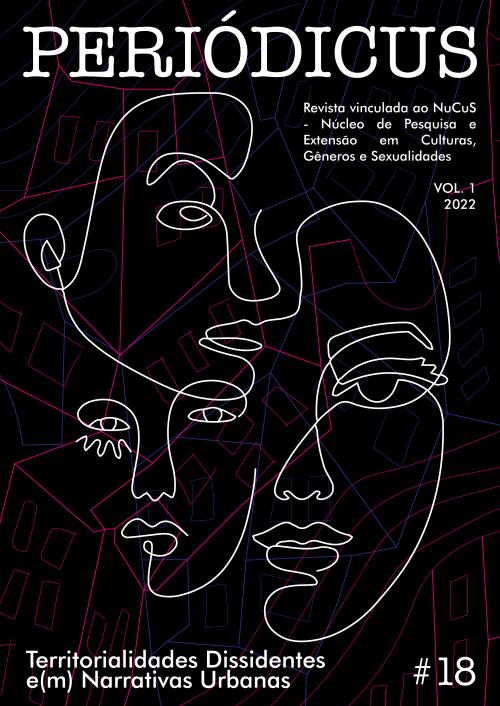Dissident experiences in the public space
ruptures and (dis)continuities in the city
DOI:
https://doi.org/10.9771/peri.v1i18.49911Abstract
Cities and individuals constitute intrinsic relationships in which the subjects develop a relevant function in the consignment of dynamics in urban spaces. The objective here is to reflect on the spatial constitution from the queer theory, to try to point out the relationships involved with the failure to comply with ‘normal’ social conventions of performance in public space. A review of the literature with the scope centered on studies of gender and sexuality is proposed to support the analysis and highlight the perceptible spatial involvement in determining such norms, that is, to point out the dissident experiences identified, as well as to establish debates about the space/individual’s relationship and its appropriation. Finally, the value of the construction of public space is emphasized with the diversity of appropriation in which queer subjects manifest themselves as a possible body, establishing ruptures and (dis)continuities in the city.
Downloads
Downloads
Published
How to Cite
Issue
Section
License
Copyright (c) 2022 Maria Eduarda Batista Dellamagna

This work is licensed under a Creative Commons Attribution-NonCommercial 4.0 International License.
Autores que publicam nesta revista concordam com os seguintes termos:
Autores mantêm os direitos autorais e concedem à revista o direito de primeira publicação, com o trabalho simultaneamente licenciado sob Licença Creative Commons Attribution Noncommercial que permite o compartilhamento do trabalho com reconhecimento da autoria e publicação inicial nesta revista, sendo vedado o uso com fins comerciais.
Autores têm autorização para assumir contratos adicionais separadamente, para distribuição não-exclusiva da versão do trabalho publicada nesta revista (ex.: publicar em repositório institucional ou como capítulo de livro), com reconhecimento de autoria e publicação inicial nesta revista.
Autores têm permissão e são estimulados a publicar e distribuir seu trabalho online (ex.: em repositórios institucionais ou na sua página pessoal) a qualquer ponto antes ou durante o processo editorial, já que isso pode gerar alterações produtivas, bem como aumentar o impacto e a citação do trabalho publicado (Veja O Efeito do Acesso Livre).







